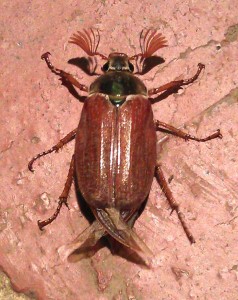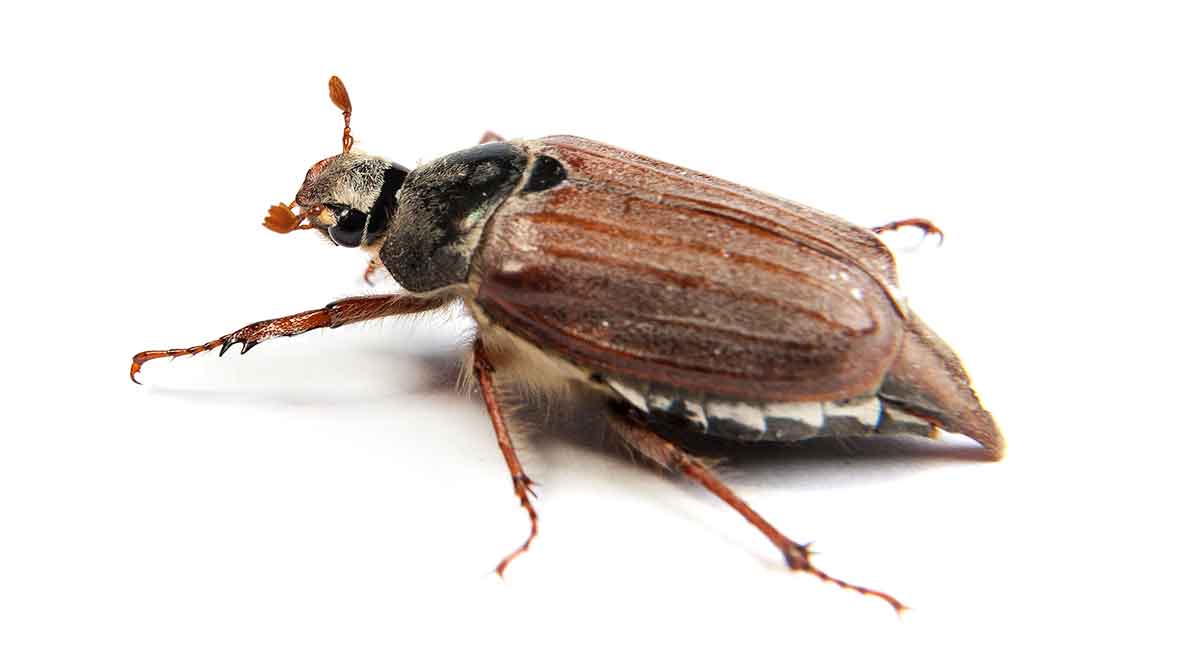Is it a cockroach?
What is a May Bug?
Each year in May we get calls from concerned householders that think they have been invaded by a cockroach or two.
This heralds the arrival of May Bug season.
The May Bug or cockchafer is a large beetle that emerges in May or June.
Cockchafers are often mistaken for cockroaches.

Attracted to light
May Bugs are attracted to the light that shines out of your windows in the evenings, often making a clattering noise as they bump into the glass.
Most people are aware that cockroaches pose a serious health hazard if the become established in our homes.
Adult cockchafers however, are harmless.
The sheer size of these beetles can be quite alarming but they do not bit or sting. Nor do they invade houses and set up home there.
Cockroach and cockchafer compared
The short, broad and forward facing antennae on the the cockchafer gives away its identity.
Cockroaches in comparison have long swept back antennae. They also tend to scuttle away from lights rather than moving towards them.
Cockchafer life cycle
The female adult cockchafer lays her eggs underground. After a few weeks these eggs hatch into larvae or grubs. Cockchafer larvae can spend up to 4 years in the ground developing.
These are large, juicy grubs that are very attractive food source for foxes, badgers, crows and other animals.
The larvae pupate for several weeks in autumn, continuing to spend the winter underground before emerging in early summer. Adult cockchafers are usually about 30mm long. Their long development time means that the adult beetles appear in cycles of three or four years.
Cockchafer damage
Whilst adult cockchafers are harmless, their larvae can do considerable damage to crops, plants and vegetables.
In addition, their presence may encourage predators to dig and disturb planted areas and lawns in order to get at this tasty food source!
Where appropriate, their numbers can be controlled with approved pesticides.
Advice and help
If you still think you may have cockroaches, or if you need advice on controlling cockchafer larvae, give us a call on

